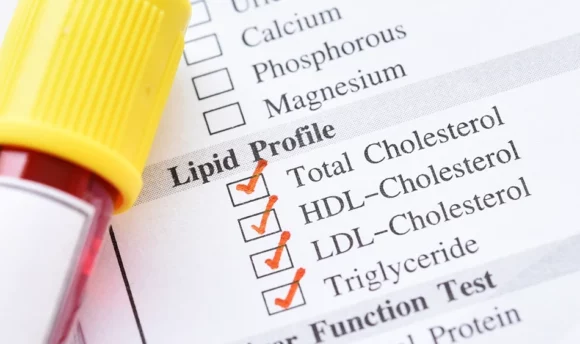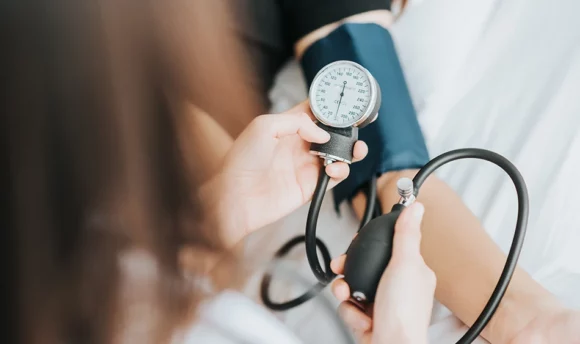Does Gabapentin Affect Your Heart Rate?
Gabapentin is an anticonvulsant usually used to treat seizures in those with epilepsy. But does this drug affect your heart rate? Find out more about gabapentin in this article.

Gabapentin is an anticonvulsant that is used in the treatment of epilepsy, brain seizures, and nerve pain resulting from shingles. It is not used to cure epilepsy but may be used to manage the condition and reduce the frequency of seizures.
Gabapentin must be prescribed by a doctor and is taken orally via a tablet, a capsule, a solution, or a suspension.
The drug has a number of side effects and may affect your heart and cardiovascular system in different ways. There is research to suggest that cardiovascular effects occur after taking gabapentin.
In this article, we’re going to take a look at what gabapentin is, how it could affect your heart, the other side effects of gabapentin use, and how you can keep your heart rate healthy. Keep reading now to learn more.
What Is Gabapentin?
Gabapentin is an anticonvulsant medication that is used in the treatment of epilepsy. It is thought to reduce the number of seizures in people with epilepsy by decreasing the abnormal electrical activity in the brain. It is not a cure for epilepsy.
Gabapentin may also be used to manage the condition of postherpetic neuralgia. This is the pain that occurs after having shingles. It is used to treat other pain caused by the nervous system. It may also be used in patients with restless leg syndrome.
Gabapentin is usually taken orally. It comes as a tablet, capsule, solution, or suspension. It must be prescribed by a doctor.
Does Gabapentin Affect Your Heart Rate?
Gabapentin can affect your heart rate in a few different ways. In a double-blind, observational study, patients undergoing elective surgery were administered different doses of gabapentin. The study found that 400mg of gabapentin resulted in a higher heart rate and blood pressure, whereas 800mg of gabapentin resulted in a lowered heart rate.
In addition, a study in rats found that the drug may be able to reduce both blood pressure and heart rate, though these studies have not yet been replicated on humans.
Gabapentin use may also lead to a rapid or irregular heart rate. Gabapentin has more recently been used for recreational purposes, and this substance misuse may lead to addiction. One of the withdrawal symptoms of gabapentin use is thought to be a rapid or irregular heartbeat.
If you’re using the drug safely, you are unlikely to experience this side effect, though it has been reported among the side effects of gabapentin.
It is important to note you are at increased risk of becoming addicted to gabapentin the longer you use it, which is why when stopping gabapentin suddenly, you may experience withdrawal symptoms like rapid heart rate.
If you experience these symptoms, speak with your doctor immediately. They are likely to recommend slowly reducing the dosage of gabapentin you are on to avoid any adverse effects.
What Is the Most Common Side Effect of Gabapentin?
The most commonly reported side effects of gabapentin, which occur in around 10% of users, are dizziness, sleepiness, and water retention. Water retention refers to swelling that occurs in the arms, legs, and feet.
Not everyone reports getting side effects from using gabapentin. If you do experience any of these side effects, and they are having a serious impact on your life, it is important you speak with a doctor or healthcare professional.
Side Effects of Gabapentin
Users of gabapentin commonly report the following side effects:
- Blurred vision
- Delusions
- Psychiatric disorders, like dementia
- Hoarseness
- Cold and flu-like symptoms
- Lack or loss of strength
- Trembling or shaking
- Pain in the lower back
Side effects of gabapentin differ in children and may include:
- Behavioral issues, like aggressive behavior
- Anxiety and/or depression
- Crying
- Difficulty with concentration and/or change in school performance
- Hyperactivity
- Rapidly changing moods
- Restlessness
If you have kidney disease, you may experience potentially fatal toxicity when taking the drug and are likely to be advised not to take it. Other kidney effects can include:
- Changes in urine production, including how much urine is produced
- Difficulty peeing
- Blood in urine
- Weight gain
- Dark urine
- Swelling in arms and legs (fluid retention)
Rarer side effects of taking gabapentin may include:
- Suicidal thoughts or behavior
- Violent and aggressive behavior
- Anxiety and depression that have worsened or are new
- Irritability
- Hallucinations
- Panic attacks
And other abnormalities you may notice with using the drug include:
- Fatigue, tiredness, and weakness
- Muscle pain
- Stomach pain
- Bluish tint to the skin of the nail beds, lips, toes, or fingers
In some rare cases, people using gabapentin may experience an allergic reaction, which can be life-threatening. Symptoms of an allergic reaction include skin rash, swollen lips, swollen glands, itchy eyes, wheezing or difficulty breathing, and loss of consciousness.
If you experience the symptoms of an allergic reaction, seek immediate emergency medical attention.
How to Keep Your Heart Rate Healthy
Your heart rate can change from minute to minute depending on what you are doing, but keeping your resting heart rate within the normal range can help keep your overall heart rate healthy. A healthy resting heart rate is anywhere from 60 to 90 beats per minute.
Everything from stress, medications, and caffeine to exercise and walking around can change your heart rate, but there are a few things you can do to keep your heart rate as healthy as possible.
Regular exercise is one of the best ways to maintain a healthy resting heart rate. While the exercise itself increases the heart rate, the more you exercise, the lower your resting heart rate becomes. Try incorporating a daily run or pilates class into your schedule to increase your activity levels.
You could also try reducing stress by practicing mindfulness, setting boundaries, and trying out meditation.
It is also recommended that if you smoke, you should stop. Also, if you are overweight, you should try to lose weight to keep a healthy heart rate.
FAQs
Constipation is listed as a side effect of gabapentin, though many people will not experience side effects when using this and other drugs. If you experience severe constipation while taking gabapentin, speak with your doctor.
Gabapentin can make you jittery. It is known to cause trembling, shaking, and tremors, though this side effect is only thought to affect 10% of users. The drug affects the nervous system, which could be the reason for this side effect.
Gabapentin can cause new or worsened anxiety, though this is classified as a rare side effect. If you notice your anxiety worsening while taking gabapentin, it is best to speak with your doctor to see how this could be improved.
A Word From Our MD
When beginning a new drug, like gabapentin, it is best to read all of the drug information to understand how the drug works in your body. While side effects tend to be uncommon for most drugs, some people experience debilitating side effects.
Side effects that do not cause serious problems for you do not usually require medical attention. If you are getting serious side effects that are making it difficult to continue with life as normal, then you need to speak with your doctor to discuss other treatment options.
Gabapentin is thought to affect your pulse rate in a few ways. It has been shown in studies previously mentioned to reduce pulse rate, but rapid and irregular heartbeat is a withdrawal symptom of the drug too.
Rapid and irregular heartbeat is usually caused by suddenly stopping gabapentin usage or from misusing the drug for recreational use. Generally, gabapentin is safe for use by adults and children over the age of 6 years old.
People who should not take gabapentin include those with conditions affecting the lungs, including COPD, and those with kidney disease. In addition, if you are pregnant or trying to conceive, your doctor may advise against using too.
Gabapentin may also interact with or enhance the effects of medications, including antidepressants, antihistamines, and some recreational drugs. Speak with your doctor for advice on combining medications.
Conclusion
Gabapentin is a drug used mainly to treat seizures in those with epilepsy, though it may also be used for other pain caused by the nervous system. It is generally safe for use.
Gabapentin may affect the rate of your heartbeats in some instances. It has been shown to both increase and decrease the heart rate in different settings. A rapid heartbeat is a withdrawal symptom of the medication.
Most heart-affecting side effects can be avoided with proper use and medical care. If you’re concerned about how the drug may affect your heart, speak with a healthcare professional before you begin using it.

















































 Select your language:
Select your language: 








